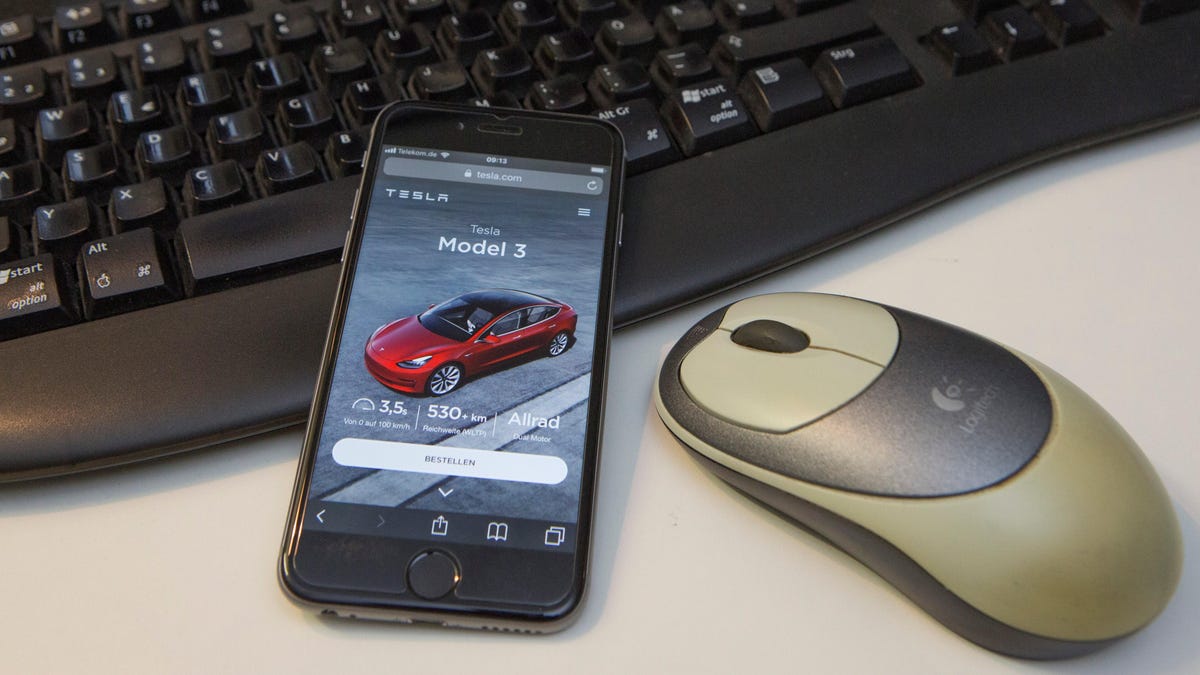
The international pandemic introduced an surprising boon to the automobile market within the U.S., with costs hovering as folks scrambled to purchase new and used automobiles. Many individuals by no means fairly made it to a dealership or lot, nonetheless, as lockdowns and a rising pattern of purchasing for automobiles on-line coalesced right into a state of affairs that’s making many sellers nervous: in 2021, on-line gross sales of automobiles in America jumped by 25 p.c.
This accounts for the one greatest acquire that U.S. auto ecommerce has seen previously decade, as Wired experiences, which says that purchasing a automobile on the web is now not area of interest; it’s rapidly turning into the norm. Wired refers to this variation in automobile shopping for because the “Amazonification” of the U.S. automobile market, evaluating the method of shopping for a automobile on-line to that of shopping for a TV or sofa on Amazon:
For years, automakers resisted the Amazonification that has swept the remainder of the worldwide economic system. There was a sense patrons wouldn’t really feel comfy making that main, costly buy on-line. However US auto ecommerce gross sales grew by 25 p.c in 2021, the largest leap previously decade, in keeping with a report from the funding banking agency Cowen, which judges the sector to nonetheless be “early” in its digital transformation. Latest knowledge from the auto companies agency Cox Automotive exhibits that whereas satisfaction amongst US automobile patrons went down general final yr, those that accomplished at the least half of the steps on-line have been extra prone to be happier concerning the course of. Most automobile patrons will work together with at the least one digital instrument whereas shopping for a automobile this yr, Cox estimates.
Carmakers have been skeptical that patrons within the U.S. — the place it simply so occurs that sellers are protected by a authorized framework courting again to the Fifties — would ever embrace on-line automobile buying. However they’ve. Whereas the pandemic could have been the catalyst of auto ecommerce progress within the U.S., EVs are actually spurring it on.
Carmakers resembling Volvo, Acura, Ford and GM are committing to on-line automobile gross sales for his or her upcoming EVs, albeit to various levels. Tesla was the primary to supply a digital car-buying expertise throughout its lineup, however legacy automakers are coming round to the concept.

Sellers and franchisees are combating the change; they’re nonetheless clinging to older enterprise fashions regardless of stress from each carmakers and automobile patrons. It’s no marvel sellers would resist direct gross sales, as a result of, by definition, promoting on to shoppers will lower seller earnings. And it’s going to be onerous to just accept much less revenue after record-setting cash was made in the course of the pandemic.
Some sellers are pushing again in opposition to on-line initiatives handed down from automakers: Ford is being sued in three states by dealership associations that declare the corporate is breaking the regulation by making them spend as much as $1.2 million to promote EVs just like the Ford Mustang Mach-E and Ford F-150 Lightning. Ford CEO Jim Farley has stated the corporate needs to maneuver to a non-negotiable pricing mannequin and gross sales which might be 100% on-line. Honda has echoed the sentiment.
Dealerships would go from festooned auto malls with formidable financing departments to service facilities the place patrons can find out about their new EVs (chosen and bought on-line), then choose up their automobiles and go on their approach — solely to return solely at service intervals.

And but, carmakers resembling GM suppose the way forward for car-buying is neither 100% on-line nor 100% on seller heaps. It’s probably that car-shopping within the near-to-mid time period goes to be various. There might be choices for purchasing a brand new automobile on-line or at a brick-and-mortar dealership or someplace in between. Dealerships must adapt to this hybrid enterprise mannequin, and discover ways to foster relationships on-line. Gross sales begin by way of e mail, then transfer to the showroom.
For the following few automobile generations, at the least, sellers are right here to remain. Regardless that the “Amazonification” of the American auto market is a persistent pattern, the issues we purchase on-line vary from furnishings and huge electronics to things which might be mundane and quotidian, like a cable to cost our telephone. There are nonetheless many individuals who’d favor to purchase their TVs, couches and automobiles in individual. Sellers must adapt to digital retail in the end, however they may survive for now.



